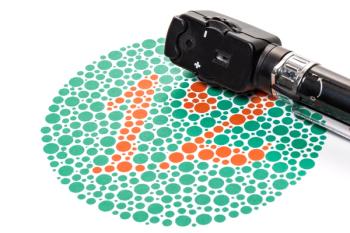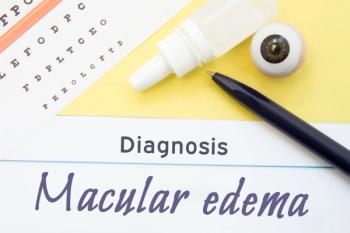
Payments from Pharma Companies Sway Ophthalmologists’ Behavior
Even small payments can influence ophthalmologists and optometrists to prescribe branded therapies to treat patients with glaucoma.
Ophthalmologists and optometrists in the United States who receive payments are more likely to prescribe branded prostaglandin analog eye drops, according to a recent
Prescription prostaglandin analog eye drops are used to treat open-angle glaucoma. These drugs lower intraocular pressure, a risk factor for glaucoma. Latanoprost and some formulations of bimatoprost and travoprost are available in generic form. Tafluprost is a preservative-free prostaglandin analog.
Investigators found that even small payments, what they call transfers of value, were associated with higher prescriptions for the branded therapies. “While the median reported transfers of value to a prostaglandin analog prescriber was relatively low in this study, there was a positive association between amount of reported nonresearch transfers of value received from prostaglandin analog makers and the frequency of branded prostaglandin analog use. This shows that small, reported transfers of value were associated with differences in prescribing,” they wrote
Investigators suggested that high rates of branded prostaglandin analog prescribing may pose a cost burden to patients that affects adherence.
Investigators, led by Andrew M. Nguyen, BS, BA, Johns Hopkins University School of Medicine, Baltimore, Maryland, conducted a retrospective cohort analysis of prostaglandin analog eye drop prescribers in 2018 using a nationally representative 20% sample of Medicare beneficiaries in the 2018 CMS Part D Event data set. This data set contained 2,545,761 claims for four branded therapies and generics. These include latanoprost and the branded Xalatan (latanoprost) from Viatris, travoprost and the branded Travatan (travoprost) from Novartis, bimatoprost and the branded Lumigan (bimatoprost) from Allergan, and tafluprost and the branded Zioptan (tafluprost) now part of Thea Pharma after the company acquired Akorn’s ophthalmic brands early this year.
Investigators were able to match 34,931 of 35,855 eye drop prescribers with an identified specialty (97%) between Open Payments, Part D Event claims, and 2017-2018 Outpatient and Carrier Claims. A total of 26,070 prescribers were identified as vision care professionals (optometrists or ophthalmologists), and 26,038 were retained for analysis after dropping those with missing sex and geographical location data.
They found that the median total value of reported non-research transfers of value received from drug makers was only $65. Ophthalmologists received more than optometrists, a median of $68 vs $54, and glaucoma specialists received more than nonglaucoma specialists, a median of $140 vs $61.
Overall, there were 2,893 prescribers (11%) who prescribed branded PGAs between 50% and 75% of the time, and 1,106 (4%) prescribed branded PGAs more than 75% of the time.
And the receipt of any non-research transfers of value was associated with a greater likelihood of being a high prescriber of branded PGAs.
“While we cannot determine the motivations of clinicians who frequently prescribe branded PGAs [prostaglandin analogs] or the reason why individual patients were prescribed a branded PGA, reported receipt of industry TOV [transfers of value] does seem to be an important factor associated with branded PGA use,” investigators wrote.
They said a limitation of this and other studies on this topic is the use of cross-sectional data, which makes it difficult to infer causality between reported industry transfers of value and branded drug use.
Newsletter
Get the latest industry news, event updates, and more from Managed healthcare Executive.























